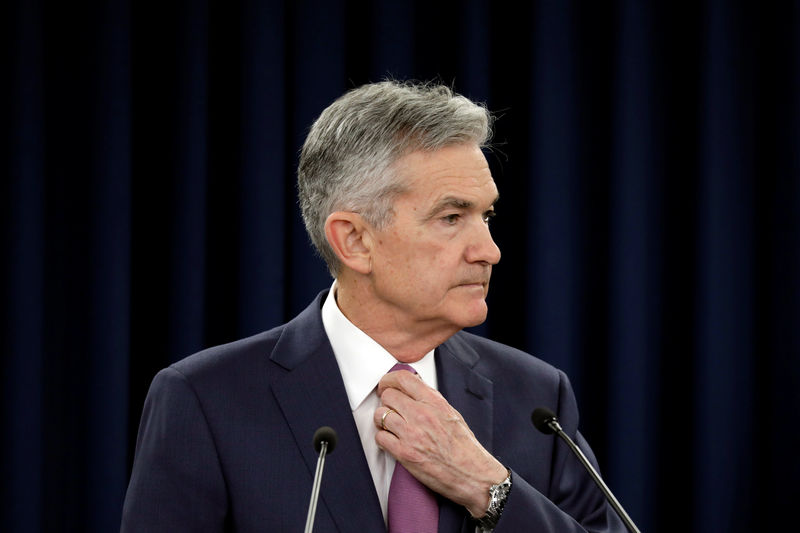(Bloomberg) -- Federal Reserve Chair Jerome Powell is doubling down on the U.S. central bank’s new policy framework -- saying he won’t entertain interest-rate increases until the labor market heals further, even though inflation could run hot for months.
“There is still ground to cover to reach maximum employment,” Powell told reporters Wednesday. “The inflation that we’re seeing is really not due to a tight labor market.” His comments came after the Federal Open Market Committee announced it would start slowing its $120 billion of monthly asset purchases at a pace that puts it on track to finish the process by mid 2022. The FOMC’s policy statement also included new language hedging the risk that inflation might not prove to be entirely transitory.
Powell’s current tenure as chair ends in February and his post-FOMC meeting press conference may be his last one before the White House announces whether he has earned another four-year term or Joe Biden will pick someone else. The president said Tuesday that he’ll make a decision “fairly quickly.”
Whoever is leading the Fed next year faces a path fraught with risk.
It is essentially gambling on a forecast that the knots in the U.S. port system, overseas production and U.S. labor markets begin to unravel next year -- easing price pressure while ultra-low rates continue to stimulate demand.
“We have high inflation and we have to balance that with what’s going on in the employment market,” Powell told reporters. “It’s a complicated situation.”
Inflation has run above the Fed’s 2% target on a 12-month basis every month since early this year. Several more months of this could restore pricing power on behalf of companies, which is already apparent on scarce products, and start to shift inflation psychology higher.
At the same time, the labor market is still millions of jobs short of pre-pandemic levels. The employment-population ratio, for example, stands at 58.7% compared to 61% in December 2019. “We don’t think it is a good time to raise interest rates because we want to see the labor market heal further,” Powell said. “The level of inflation we have right now is not at all consistent with price stability.”
That’s an exact expression of the tension now in the new policy framework, which Powell led the central bank to adopt last year. The central bank says it won’t lift rates from near zero until it has reached maximum employment and has also said it won’t prejudge what that goal is.
He’s “balancing the risk you’re not at full employment against the risk you’re going to overshoot inflation,” said Michael Feroli, chief U.S. economist at JPMorgan Chase & Co. (NYSE:JPM) “Right now, employment is a greater concern.”
Adding to the complexity is the point that what constitutes maximum employment after the massive labor markets shock of 2020 – when 20.7 million jobs were lost in a single month in April -- evolve over time.
Mothers who have been home with children could flow back in slowly, while service workers worried about their health could also decide to go back to work once the risks of variants subsides. “There’s room for a whole lot of humility here as we try to think about what maximum employment would be,” Powell said.
If labor remains scarce and wages are rising, the Fed can say they are at some interim level of maximum employment, while hoping for further gains down the road, and raise interest rates.
“He’s more humble about where inflation is going and where labor force participation is going,” Feroli said. “There’s growing doubt about labor supply, about labor force participation” returning to its pre-pandemic level.
©2021 Bloomberg L.P.
